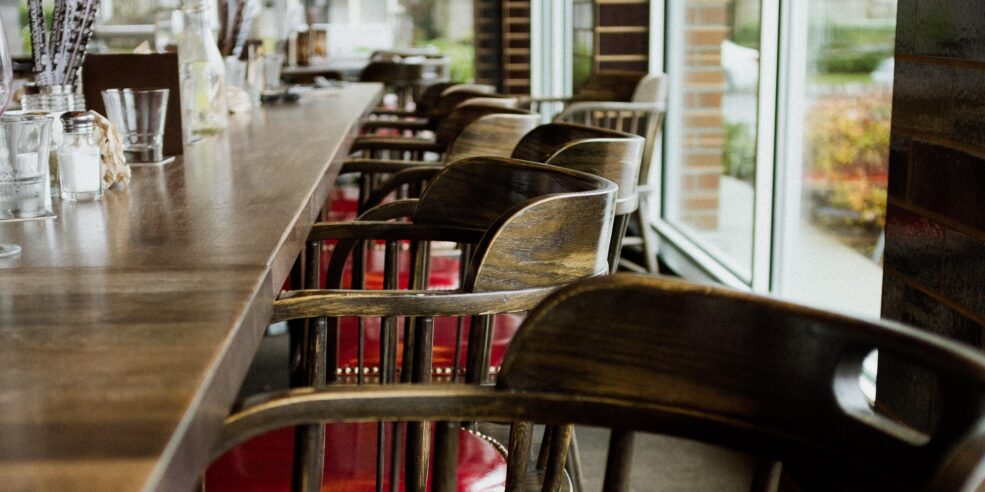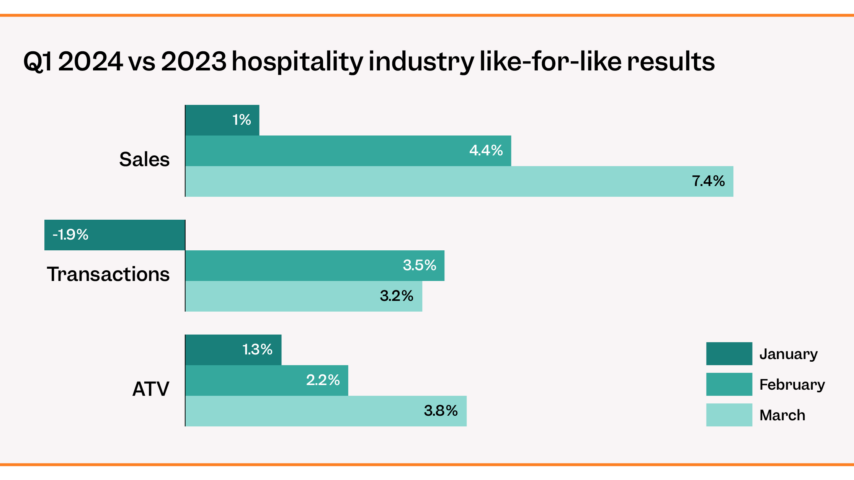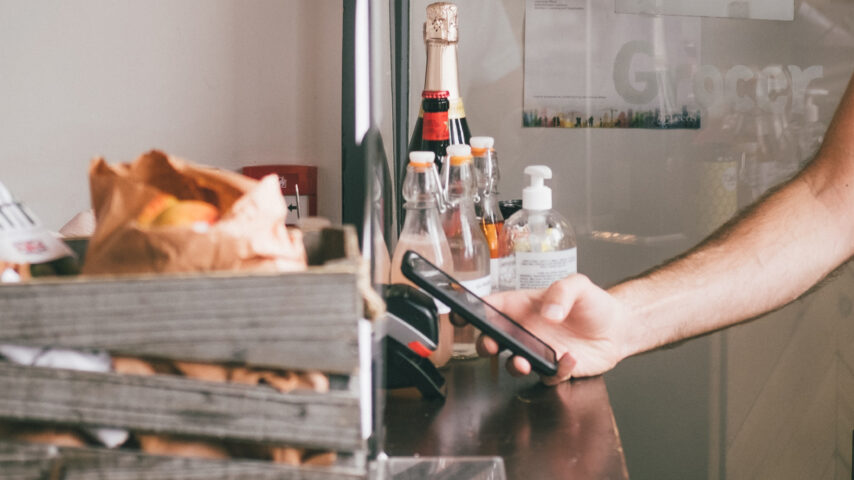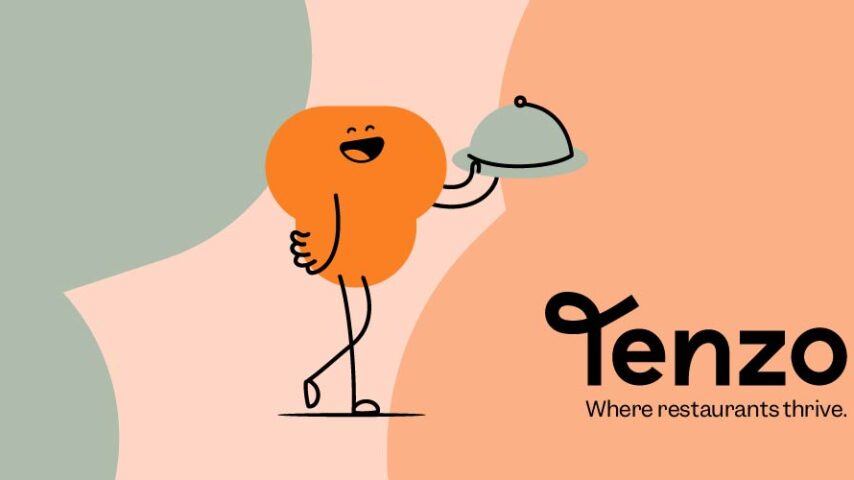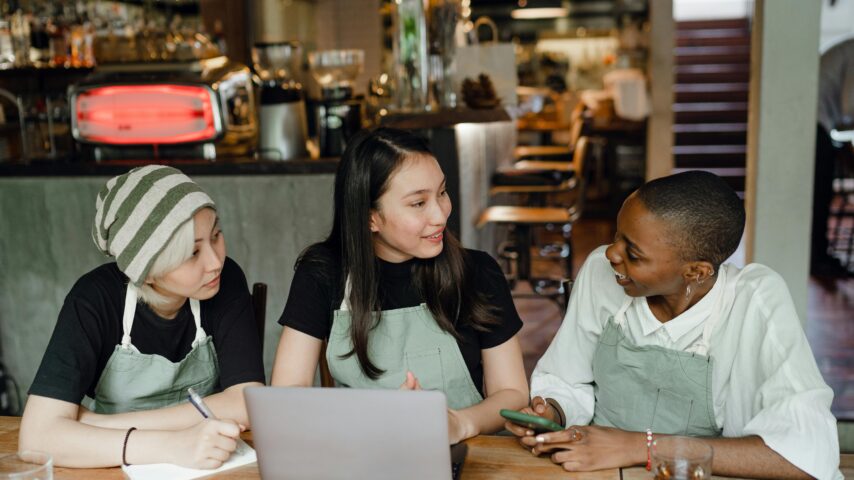We’ve just wrapped up season one of our podcast, In the soup. And after having five amazing guests on, we’ve been left with a lot to think about as the reopening phase in the UK begins. Here we sum up what we’ve learnt from these five seasoned restaurant operators.
Somewhat naturally, these episodes focus on how COVID-19 has affected the industry, and while this has been an insecure and trying time for the hospitality sector, our guests have positive outlooks for its future.
They all praise the government for its actions, saying that, in the UK, the furlough scheme, CBILS and Bounce Back loans have been more than they could have ever hoped for or expected. They also stress the importance of community and communication both between staff and customers, the need to innovate, helping suppliers and discussing the survival and future of the industry.
Community hubs
Times of crisis bring all of us together, and this couldn’t be truer in the restaurant industry whose staff and customer communities became the first priority for our guests.
Staff
When it comes to staff, our guests were blown away by the support of their teams throughout the pandemic. At Upham Pub Group, Financial Director Robb Harris, mentioned how helpful his 400-strong team was during the week of March 16th, when restaurants were not officially closed by the government but people were discouraged from going out.
European Pubs Managing Director, Charles Owen, had his staff to thank for a logistical feat that seemed nearly impossible as France announced a sudden lockdown, stating, ‘Incredibly proud [of our managers] that by the end of three days, all the guests we had in our hotel were back safely, all the staff who needed to be back in the UK were back safely.’ It just shows that building a solid team is one of the most important aspects of running a successful restaurant business.
Customers
Customers also had to be considered. Barak Peled, co-founder of Morso, felt a certain responsibility to the community that had supported him and enabled him to open a second location just six days before the lockdown came into effect. He brought his staff in (to give them the hours as well) and had them call his 5,000-customer database to tell them, ‘we might be going into a full lockdown and you need to know that we’re open and we can look after you. So if you need us to bring groceries, we’ll bring groceries, if you need us to take your dog for a walk, we’ll take your dog for a walk.’
While Morso went above and beyond what might have been expected, there was a definite feeling of needing to have clear communication plans with customers to let them know what was being done to keep both their customers and staff safe. Both Robb and James Mclean, consultant at Truffle Hunting, think that clear and direct information is what is going to make customers feel comfortable in coming back to dine-in restaurants. And for cohesive messaging, James goes as far as to encourage staff inductions on safety plans as well as giving them resources they can refer to during service so that everyone is on the same page safety-wise.
More innovation than we’ve ever seen before
Operators realised from the get-go that cash was going to be the most important asset when it came to getting through the lockdown. Andy Holman, CEO of Eathos, broke it down most succinctly saying, ‘The name of the game for every industry right now is cash flow management, protect cash so that you can keep paying as much as you’re able the employees that are necessary to keep on furlough or keep in play, so that when recovery comes we can get up to operating speed as fast as possible.’
But replenishing that cash requires innovation and savvy to make the most of a pretty terrible situation. Upham Pubs have, according to Robb, started trialling takeaway and delivery options – something they haven’t tried before – with the view of these channels becoming a permanent part of the business going forward. The feeling is that people’s expectations have changed since the pandemic began and there is definitely a need to keep up with these.
Charles also wanted to make sure everyone was taken care of including the musicians who regularly performed at his restaurants throughout the ski season – these guys were now missing out on a lot of income. So he and the team decided to set up the Confinement Session on the Jack’s Bar Facebook page, having musicians stream live from their living rooms to anyone who wanted to watch. They also set up a fundraising page so that any watchers could give back to the musicians. And while it’s been extremely helpful for the musicians, it’s also done the double-duty of keeping Jack’s Bar in customers’ minds, fomenting excitement for the next season and reopening.
Of course, a big trend to come out of lockdown culture has been the DIY kit – just look at Pizza Pilgrims who are cranking out 600 pizza kits a-day. But James has been looking at ways to go take that idea even further by partnering with companies who can sell the whole restaurant experience. He floats the idea of doing a referral deal with barbecue suppliers if you’re selling BBQ home kits, and thinking outside of the obvious to get a leg up on competition.
The supplier-restaurant relationship
Guests were in agreement that without a supply chain, there are no restaurants – so keeping suppliers in business is absolutely essential. Charles is well aware of restaurants’ position in this food chain, stating, ‘we are middle-men between our suppliers and the general public,’ and ‘when we start up again, our suppliers still need to be in business. So we’re doing what we can to actually put our suppliers directly in touch with consumers.’ Direct to consumer approaches have been instrumental during lockdown to keep the supply chain from going under considering that, when restaurants start to reopen at the beginning of July, those resources will be a total lifeline.
Aware of the knock on effects that not paying local suppliers would have had, Robb was insistent that Upham pay all the local small businesses they use ‘in full and on time’. He was proud to say that 90% of his suppliers fell under that umbrella, but that in reality they represented a very small portion of the cost. Nonetheless, he was extremely pleased that, on the whole, the big suppliers were completely understanding, deferring payments and helping in whatever way they could. This situation has really emphasised the symbiotic relationship that exists between suppliers and restaurants. It just hammers home the fact that there really isn’t one without the other and that’s something we might sometimes forget.
What the future holds
The good news is that each and every one of our guests strongly believe in the resilience of the industry. James was very adamant that, ‘People are still going to want to eat out, they’re still going to want to have the experience, they’re still going to want to break bread and share stories, we’re just finding new ways to do it.’ That’s the thing, there will be changes to how we go about eating out in the future but that may indeed be a good thing.
Considering these changes, Andy was sure that the investing outlook will change and people will no longer be building or investing in restaurants where 90-95% of revenue comes from dine-in sales. The format is evolving to include kitchen space for several brands, a real delivery strategy from the get go and new ways of getting food to your customers.
In terms of the day-today, the furloughing of the majority of staff has meant that directors have gotten a better idea of where the bottlenecks are. Robb got a clearer idea of his processes, realising that, ‘a lot of things were fine before, but must have just been taking time and effort to administer, so I’ve had a bit of a window to trim some of that out.’
Both James and Charles hope that the industry can consider its carbon footprint and environmental impact a bit more from now on. James hopes that people realise that there isn’t a need to constantly travel between sites, that remote working is possible and effective. Charles is hopeful that, ‘we get a chance to be a little bit more reflective on what we’re doing, particularly what we’re doing to the planet and the environment. I think it’s been fantastic seeing how certain areas of the environment have had a chance to just kind of flourish a little bit more.’
Finally, Barak hopes that some of the things that we’ve taken for granted in the industry such as tronc and mad spending can be questioned and improved. Barak is very against the current inclusion of tronc in salaries and believes that the furlough scheme will open the eyes of a lot of employees who had previously never questioned how their salaries were broken down. He also sees the trend of opening and procuring restaurants for massive amounts of money just for the glam factor stopping. He hopes that this experience will ‘slow down the opening rate of the industry, which in turn will lead to more cash responsible operators, to better manage business all in all. That could only have a positive impact.’
Final thoughts
So what have we learnt throughout this first series? It seems that restaurateurs have really been seeing the value of community. Staff who want to help, who believe in the business are integral in its survival and on the customer side, nurturing that community, being direct and upfront in your message is the best thing we can do at the moment, and will be remembered long after lockdown has finished.
It’s also clear that innovation and straying from the well-worn path is going to be a saviour in the long run. Understanding new customer expectations and demand, and evolving with the times will mean success. Whether that’s getting on the dark kitchen train, supplying more ‘finish at home’ products or any of the other innovative strategies we’ve seen throughout the pandemic.
And hopefully this has been a learning experience for the entire industry and we see some real positive changes that help the sector grow and solidify the hospitality world’s resilience to whatever comes at it.
If you would like to listen to series 1 of In the soup, you can find it on Spotify, Apple or Soundcloud. And keep your eye out for season 2 coming this summer!
